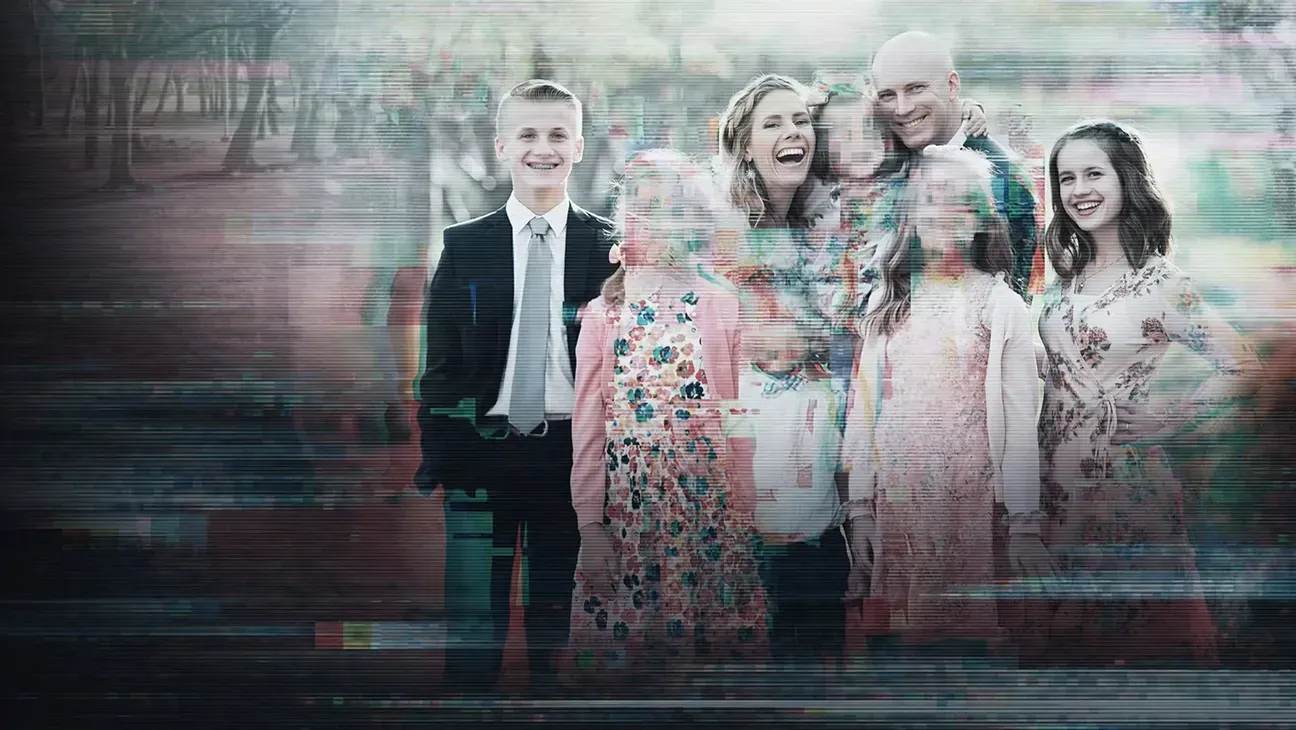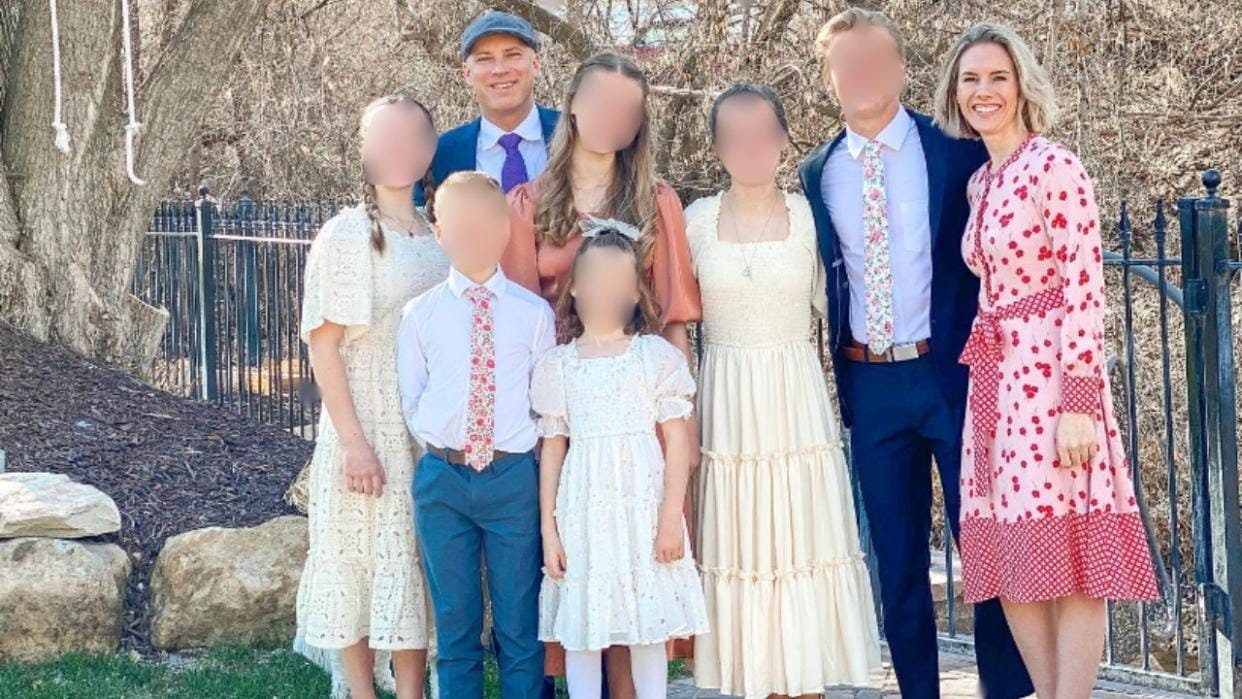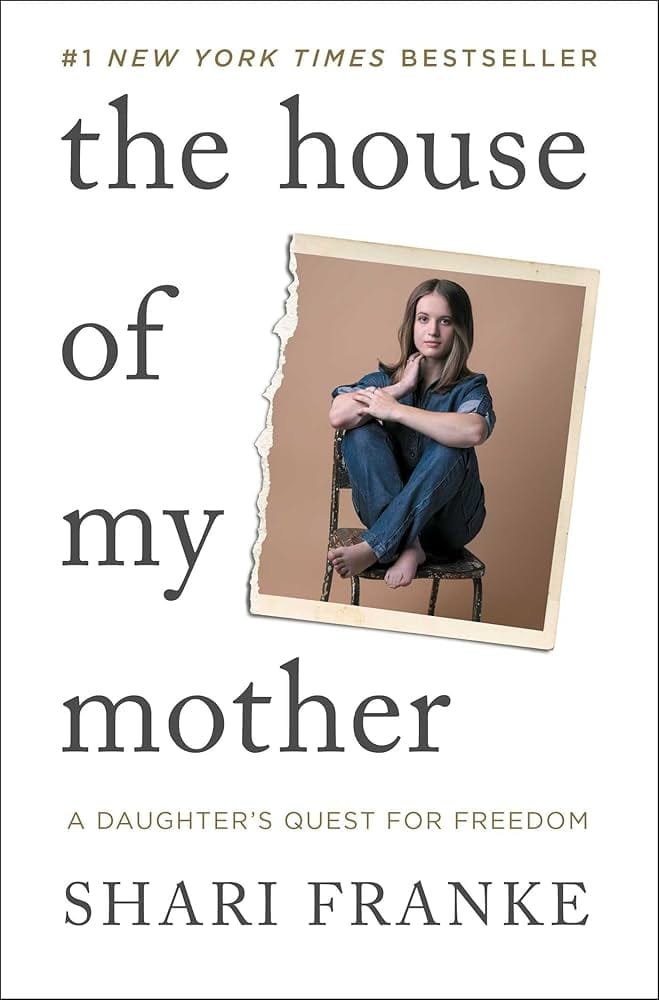Ruby Franke and Self-voyeurism

Self-objectification and self-voyeurism is the lifeblood of the Insecurity Industry. Advertisements and magazines train women to evaluate themselves from a third party perspective–historically through the eyes of men, and more recently through the faux Girl Boss archetype who does all the stuff the male-pleaser used to do but now she does it “for herself.” Huge portions of the population have made it their business model to be seen widely and often with the intent to invoke envy or lust. These influencers use modern technology to tap into primordial urges that have not evolved as quickly as the tech.
So what does this have to do with Ruby Franke? I’d argue everything.
If you don’t know about the 8 Passengers account, it was a family vlog run by Ruby Franke, promoting the “joy” of her large Latter Day Saints (Mormon) Family. Hulu released a docuseries titled “Devil in the Family: The Fall of Ruby Franke,” which chronicles the YouTube-famous family’s lives from 2015-2023. The eldest daughter of this family, Shari Franke, recently published a memoir about her childhood and quest for freedom. Leaders of the church had encouraged family vlogging, claiming it was a form of evangelizing and mission work, or giving "testimony" of the faith, and that families should be advertising the joy of their religion to the internet. Kevin Franke, the father and husband of this family, emphasized that Ruby’s goal, even before starting the channel, was “to be seen as a great mother.”
To be seen is a revealing phrase. Usually speaking, when we are something, we are seen as that thing. If we think about any other job or vocation, it would be strange to say “I want to be seen as a great plumber.” When we think of other relationships, wouldn’t it be odd to comment “I want to be seen as a great sister”? If one was simply a great plumber or sister, it is likely (albeit not guaranteed) that we would be seen for it. One of the key aspects of integrity is that we are as we seem, so there’s little need for an audience or sense of performance. And perhaps most importantly, when we have integrity there is still an internal drive to be great or do great even without external acknowledgement.

Ruby’s eight years of YouTube content included master manipulation of what she and each member of her family seemed like. Kevin admits that he was a shy nerd but needed to present as a manly leader to meet her approval and desired husband caricature. Chilling behind-the-scenes videos show her yelling at her children to “fake being happy” for the financial benefit of the family. Perhaps most bewildering to me was the deliberate effort she put into crafting and exploiting her older children’s pubescence and coming of age. Her eldest son, Chad, increased the viewership of any video she posted, especially with teenage girls online. In real life, young girls he didn’t know would beg to take photos with him.
When he was 17, Chad confessed to premarital makeout sessions and pornography use; his mother accused him of bringing evil into their house, claiming the therapist, who had moved in with them, was being periodically possessed due to his lust. She kicked him out. Ruby exploited her son’s good looks financially and for public acclaim, effectively trying to make others lust after him, and then punished him for “failing” to navigate the spiritual and social minefield she created. How many teenagers could resist being treated like a heartthrob? More widely, how many teens seek romantic validation when they don't receive personal validation at home?
Ruby Franke thrived off being considered “America’s Best Mom,” and allowed the comment sections of her videos to determine the mood of their home. In 2020, she posted a video in which her son explained that she punished him for a series of pranks by making him sleep on a beanbag for seven months, and suddenly the internet was against her. She was deeply affected by viral videos calling her abusive, and their income and numbers plummeted. From making $100,000 per month to zero partnership deals, her self-righteousness shifted the tone of her channel. For the last three years of her time on YouTube, she decided to promote a punitive authoritarian parenting method with her co-conspirator, the aforementioned cohabitating-therapist, Jodi Hildebrandt. The two psychologically harmed every member of the Franke family, and spent a little over a year physically abusing the youngest four children. I will not detail all the ways in which they tortured those children, but they deserve every year of their sentencing.
There have been countless cases of child-abuse, so why is this one capturing the attention of millions of people? Partly because millions of people were voyeurs and missed the signs of abuse. Millennials have been pioneering the internet in strange ways, including “sharenting”, and family vlogging. The two oldest Franke children have detailed that their lives weren’t perfect and their mom still did less severe abusive things before YouTube, but that the years of constantly being filmed, having their home be their “work place” with no respite, and having their coming-of-age effectively sold to strangers made all of the abuse worse.
Videos of Ruby messing up her daughter’s eyebrow with a home waxing kit went viral, and the voyeurs of YouTube thought nothing of how a 14-year-old may be embarrassed by her mom semi-temporarily ruining her appearance. Ruby would use click-bait titles and viewers would flock to see videos of bra-shopping for tweens, young girls shaving, and showing off the growing manliness of her eldest son. Ruby was able to see herself and her family the way the masses would, and shrewdly predict what would result in the highest engagement. Her keen ability to self-objectify and be the voyeur of her own family is how she was able to make millions while abusing every member of the house. If we’re honest with ourselves, almost every influencer with a large following has this ability to be his or her own voyeur. Perhaps the most morbidly fascinating part of this is that everyday people watched children being exploited and didn’t see that for what it was.
Years ago I was following a different LDS family page. It initially began with at-home workout ideas, something I looked forward to during the pandemic. But as their family grew, the videos shifted to child-centered content. At one point, the mother shared that one of her children dropped his pants and publicly defecated at Disney. I thought to myself: why on earth do I know this about this child? If I saw this child in public, I’d know exactly who he was, his full name, that he publicly pooped on the street at Disney, and even what he was wearing when he did! If he saw me, he’d see a stranger. I clicked the unfollow button.

Arguably, there may be some historical precedent for parents knowing how to "market" their kids, especially when it comes to helping them find a partner or an employment opportunity. You can imagine a mom knowing how to best describe her son or daughter to the village matchmaker. But a good spouse or job are directly beneficial to the (adult) child who is being “marketed” by Mom and Dad. Mommy influencers are financially profiting off of their children’s childhoods, embarrassing moments, private details, with no direct benefit to the child. Even in the rare cases where children are paid for these videos, what price can you really put on a childhood and the grace to make mistakes without a permanent record?
Sometimes I’ll see fellow adults argue that these pages are helpful because it’s creating a “community” to “show moms that they’re not alone.” What kind of community would involve no one being able to recognize each other? Parenthood is hard with its ups and downs; everyone knows this. So why do predominantly Mormon children need to be offered up on the altar of commiserating parents? You know the culture is upside down when parents would pick their own comfort and humor above the privacy and safety of children.
Voyeurism is a distortion of real connection. We don’t really know these people online, and the hours the average person spends scrolling online would be better spent connecting with people who can identify them back (call, video chat, meet up in person, or write a letter). We can stop online engagement with influencers who benefit from parasocial dynamics, trying to make us strangers feel like we’re part of their lives. They are masters of self-objectification, selling themselves, or their children, as objects of envy or lust for money, fame, and acclaim. They need an audience to do this, and we can refuse to participate.
While it would be inhuman to be totally apathetic to the opinions of others, it would be best for ourselves and the health of our family to not be controlled by the opinions of others. Our hearts should not have a deep desire to be seen as a great mother, wife, sister, or daughter. We should hope that our children, spouse, siblings, and parents know us to be good. For Ruby Franke, neither her voyeurs nor children will ever see her as a good mom.
Regardless of who is doing it, how they're doing it, and why they're doing it, self-voyeurism is bad for our spirits. We deserve to live in the first person, within ourselves, discerning the outside world; it does not do to predict and manipulate our lives from outside in. I believe we are each capable of learning to live in our own body and mind.
So what can we do?
- Unfollow family vloggers. We have known many examples over several generations that child stardom is rarely good for the child, so let’s just finally learn our lesson as a society.
- Parents can give their children the gift of a clean digital footprint, and the privacy to make mistakes and grow up with relative anonymity.
- Use anonymous forums (like Reddit) to find an online community of parents sharing stories or seeking advice. There should be no identifying information that can connect a post to the actual child.
- Members of LDS can initiate a religious and cultural rejection of family vlogging. Explain how children cannot consent to their childhoods being “testimony.”
- Encourage politicians to enact laws that protect these children and classify family vlogging as child labor, with protections in place for the children.
- Follow accounts like mom.uncharted to educate ourselves further on what is really happening to children of family vloggers.
- Do not give positive attention to people you know who are sharenting, especially after you have called out any inappropriate images. Do not like, praise, or interact with posts designed to elicit attention for the parent by showcasing things that should stay private.
- Keep a watchful eye for signs of child abuse, and report anything suspicious. It’s better to call for a wellness check or make a report and be wrong, than to think “none of my business” but have been right.
- Be tactful but direct with family members and friends who are sharenting. "I know that photo is cute now, but it can be used as fodder for (child abuse images, high school bullying down the road, etc.). Don't you think Kiddo deserves to have his potty training kept off the world wide web?"
Before you decide that this problem is too big for you to make any difference, keep in mind that major social changes have often come about due to shifting social mores. Charles Dickens' novels changed public perception of child and penal labor laws throughout Victorian England, with major political reform to show for it. In the US, similar movements happened thanks to books like Uncle Tom's Cabin (public support for abolition), Unsafe at Any Speed (seatbelt laws), The Jungle (Pure Food and Drug Act and the Meat Inspection Act). Allow this to be the moment that The House of My Mother galvanizes the public to protect the privacy and dignity of children and prohibit sharenting.


